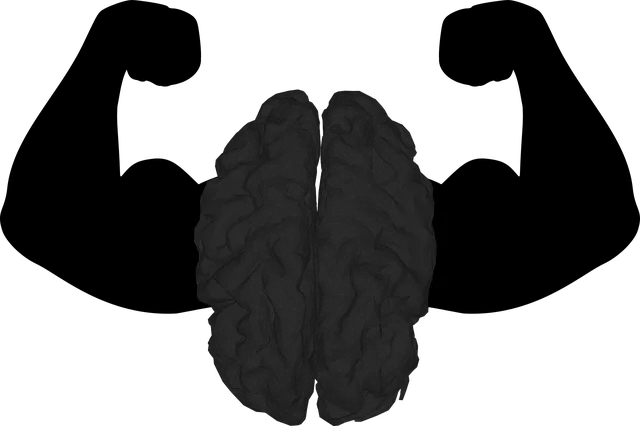Kaiser Permanente in Wheat Ridge, Colorado, offers comprehensive mental health services tailored to individual needs, utilizing a multidisciplinary team including psychologists, psychiatrists, and counselors. They focus on evidence-based practices like CBT and MBSR, self-care promotion, and stigma reduction to empower patients. Their wellness coaching programs combine individualized support with techniques like mindfulness meditation and mood management, fostering growth and healing in a safe environment. Through continuous evaluation, they measure success and improve programs by adapting techniques, incorporating innovative practices, and enhancing community outreach.
“Discovering the transformative power of mental wellness coaching within the context of Kaiser Permanente’s services in Wheat Ridge, Colorado. This article explores how tailored coaching programs can significantly enhance patient care and outcomes. We delve into the essential components that constitute effective coaching, from understanding the recipient’s needs to integrating evidence-based practices.
By examining Kaiser Permanente’s approach to mental health, we uncover strategies for continuous improvement, ensuring these programs remain dynamic and impactful.”
- Understanding Kaiser Permanente Mental Health Services in Wheat Ridge
- The Role of Mental Wellness Coaching in Modern Healthcare
- Identifying Key Components for an Effective Coaching Program
- Integrating Evidence-Based Practices into Coaching Sessions
- Measuring Success and Continuous Improvement Strategies
Understanding Kaiser Permanente Mental Health Services in Wheat Ridge

Kaiser Permanente offers comprehensive mental health services in Wheat Ridge, Colorado, catering to a diverse range of psychological needs. Their programs are designed to support individuals facing various mental health challenges, from stress management and anxiety disorders to more severe conditions. The facility leverages evidence-based practices and a multidisciplinary team comprising psychologists, psychiatrists, and counselors to deliver personalized care.
In addition to individual therapy sessions, Kaiser Permanente Wheat Ridge promotes self-care practices as part of its holistic approach. Mental illness stigma reduction efforts are also a cornerstone of their initiatives, fostering an environment where individuals feel comfortable seeking help without fear of judgment. The integration of positive thinking techniques and mindfulness practices further enhances the overall well-being of patients, ensuring they have the tools to lead fulfilling lives.
The Role of Mental Wellness Coaching in Modern Healthcare

Mental wellness coaching is emerging as a vital component in modern healthcare, particularly within organizations like Kaiser Permanente mental health Wheat Ridge. These programs are designed to support individuals in managing their mental health and overall well-being. By incorporating evidence-based practices, coaches help clients navigate emotional healing processes, fostering resilience against stress, anxiety, and depression. This proactive approach not only enhances individual happiness but also contributes to preventing burnout among healthcare providers, a growing concern in the industry.
The integration of coaching into healthcare systems like Kaiser Permanente’s strategy targets not just patients but also medical professionals, offering them valuable Burnout Prevention Strategies for Healthcare Providers. Through regular sessions, coaches assist in identifying and managing work-related stressors, improving coping mechanisms, and promoting work-life balance. This holistic approach has the potential to improve job satisfaction, boost productivity, and create a healthier, more sustainable healthcare environment.
Identifying Key Components for an Effective Coaching Program

Creating an effective mental wellness coaching program requires careful consideration and structuring of key components. At Kaiser Permanente mental health Wheat Ridge, we’ve found success lies in tailoring programs to meet individual needs while incorporating evidence-based practices. A robust coaching curriculum should encompass a multi-faceted approach, integrating techniques such as Mindfulness Meditation for stress reduction and Mood Management strategies to support clients in regulating their emotions.
Risk Assessment for Mental Health Professionals is a critical step in ensuring the safety of both coaches and clients. By assessing potential risks and implementing appropriate safeguards, we can foster an environment conducive to growth and healing. Our programs prioritize open communication, ethical guidelines, and continuous learning to empower coaches in providing exceptional support and guiding individuals toward improved mental wellness.
Integrating Evidence-Based Practices into Coaching Sessions

Integrating evidence-based practices into coaching sessions is a pivotal step for programs like Kaiser Permanente mental health Wheat Ridge. By incorporating techniques validated through rigorous research, such as Cognitive Behavioral Therapy (CBT) and Mindfulness-Based Stress Reduction (MBSR), coaches can provide more effective support to clients dealing with various mental health challenges. This approach ensures that the interventions are not just trendy but rooted in scientific understanding, enhancing the overall quality of care.
The inclusion of evidence-based practices also fosters a sense of trust and credibility among clients, especially those seeking specialized Trauma Support Services. Mental Health Awareness and Mental Wellness are paramount in today’s fast-paced world, and integrating these practices into coaching allows for more personalized and impactful sessions. This method encourages clients to engage actively in their healing journey, ultimately leading to better outcomes.
Measuring Success and Continuous Improvement Strategies

Measuring success is a pivotal aspect of mental wellness coaching programs, offering valuable insights for improvement. At Kaiser Permanente mental health Wheat Ridge, we employ comprehensive evaluation methods to assess client progress and program effectiveness. This involves collecting qualitative and quantitative data through surveys, interviews, and performance metrics. By tracking key performance indicators (KPIs), such as client satisfaction scores and treatment adherence rates, we can identify areas of excellence and potential gaps in care.
Continuous improvement strategies are seamlessly integrated into our coaching programs to ensure ongoing refinement. Drawing from feedback mechanisms and regular reviews, we adapt our approaches to better cater to the evolving needs of clients. This may include refining coaching techniques, incorporating innovative practices like Inner Strength Development, and enhancing support systems through Community Outreach Program Implementation. Resilience Building is a cornerstone of these strategies, empowering individuals to navigate challenges with greater equanimity and fortitude.
Mental wellness coaching programs, enriched by evidence-based practices, are emerging as a vital component of modern healthcare, particularly within institutions like Kaiser Permanente’s mental health services in Wheat Ridge. By integrating key components such as personalized goal setting, skill development, and continuous improvement strategies, these programs effectively support individuals in navigating their mental health journeys. The success of coaching initiatives can be measured through various outcomes, including improved clinical symptoms, enhanced coping mechanisms, and increased life satisfaction. As the field progresses, healthcare providers like Kaiser Permanente have an opportunity to revolutionize mental wellness support, fostering resilience and well-being among their clients in Wheat Ridge and beyond.






